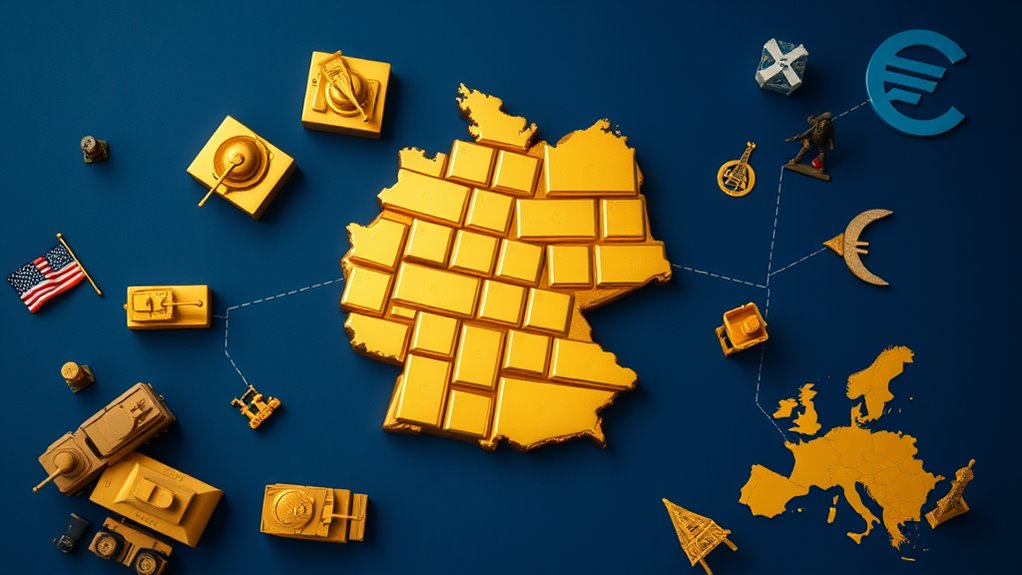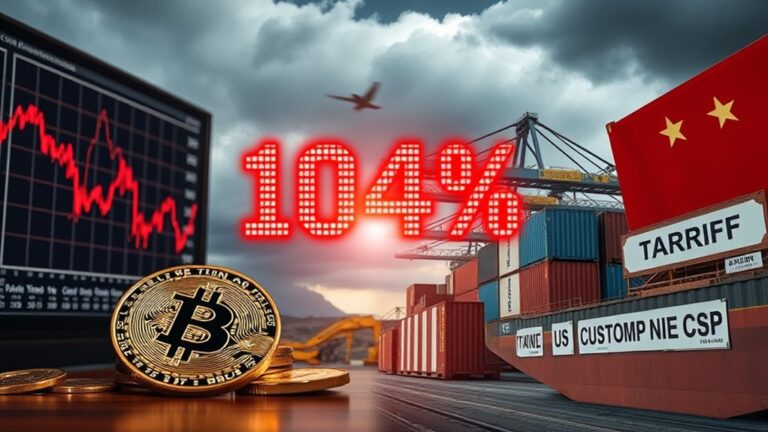Germany’s $96 Billion Gold Escape Plan: Trump’s Tariffs Trigger Trust Crisis
Note: This post may contain affiliate links, and we may earn a commission (with No additional cost for you) if you purchase via our link. See our disclosure for more info. The gold and crypto world is constantly changing. This is not financial, investment, legal, or professional advice. So, please verify the information on the gold and cryptocurrency provider’s websites.

While most European nations struggle with economic uncertainty, Germany has quietly implemented a multifaceted strategy that experts are calling its “gold escape plan.” The German government recently announced sweeping defense budget reforms alongside substantial infrastructure investments that aim to bolster its military credibility in the region.
It's about time. For years, Germany has been criticized for underfunding its military capabilities while enjoying the benefits of NATO protection. The new $96 billion initiative comes as tensions with Russia persist and Trump threatens steep tariffs. Coincidence? Hardly.
European allies are watching closely. Germany's increased defense spending sends a clear message that they're no longer willing to be the economic powerhouse with a paper tiger military. Several neighboring countries have already expressed interest in joint defense projects, potentially creating a more independent European security framework.
Infrastructure investments form another key component of the plan. New transportation corridors, energy facilities, and digital networks are being fast-tracked. These aren't just feel-good public works projects—they're strategic assets designed to withstand supply chain disruptions.
Global supply chains are the real target here. Germany's manufacturing sector relies heavily on international trade, and recent years have exposed dangerous vulnerabilities. The new strategy includes reshoring critical industries and diversifying suppliers. Not exactly rocket science, but surprisingly forward-thinking for a government known for its caution.
Military credibility doesn't come cheap. The plan allocates substantial funding for next-generation weapons systems and cyber capabilities. German officials insist this isn't an arms race but a “security guarantee.” Right.
Trump's threat of tariffs clearly accelerated these plans. German automakers would be devastated by the proposed 25% import tax. This “gold escape plan” looks suspiciously like preparation for economic warfare.
Germany's second-largest gold stockpile globally of 1,200 tons is now at the center of political debates as CDU members call for regular inspections or complete withdrawal from the US Federal Reserve.
Ultimately, Germany's strategy represents a fundamental shift in European politics. After decades of relying on American security guarantees and open global markets, the continent's economic engine is preparing for a more isolated and competitive future. This cautious approach mirrors historical precedent, as Norway once secured its national wealth by evacuating 53 tonnes of gold during WWII before enemy forces could seize it. The question isn't whether Germany has a plan—it's whether that plan will be enough.








